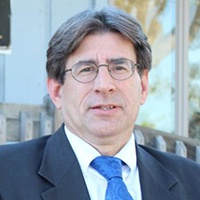Okemos Criminal Lawyer, Michigan
Sponsored Law Firm
-
 x
x

Click For More Info:
-
The Williams Law Firm
411 W Lake Lansing Rd Ste C-110 East Lansing, MI 48823» view mapCriminal Defense Law A Defense Lawyer With Proven Results
Knowing the law certainly is a necessary prerequisite but an attorney’s ability to effectively communicate is perhaps his or her paramount importance.
800-945-0701
Donald J. Baranski
✓ VERIFIEDDivorce & Family Law, Estate, Employment, Criminal, Consumer Bankruptcy
Thirty years in general practice
Donald J. Baranski received his Bachelor of Arts in Humanities Pre Law, from Michigan State University. This was a triple major of American History, P... (more)
Richard L. Williams
✓ VERIFIEDCriminal, Traffic
Attorney Richard L. Williams provides legal services for driver’s license restoration, expungement of criminal records, domestic assault, civil infr... (more)
Kit Sheintoch
Real Estate, Litigation, Divorce & Family Law, Criminal, Slip & Fall Accident
Status: In Good Standing
Adam Joel Bennett
Litigation, Family Law, Criminal, Collection
Status: In Good Standing Licensed: 20 Years
Alexander Stephen Rusek
Civil Rights, Administrative Law, Federal Appellate Practice, Criminal, Business
Status: In Good Standing
Amy Louise Yaeger
Other, Family Law, Divorce & Family Law, Criminal
Status: In Good Standing Licensed: 10 Years
Andrew P. Abood
Divorce, DUI-DWI, Personal Injury, Car Accident
Status: In Good Standing Licensed: 34 Years
Angela N. Tripi
Dispute Resolution, Criminal, Gay & Lesbian Rights
Status: In Good Standing Licensed: 9 Years
 Richard L. Williams East Lansing, MI
Richard L. Williams East Lansing, MI Practice AreasExpertise
Practice AreasExpertise


